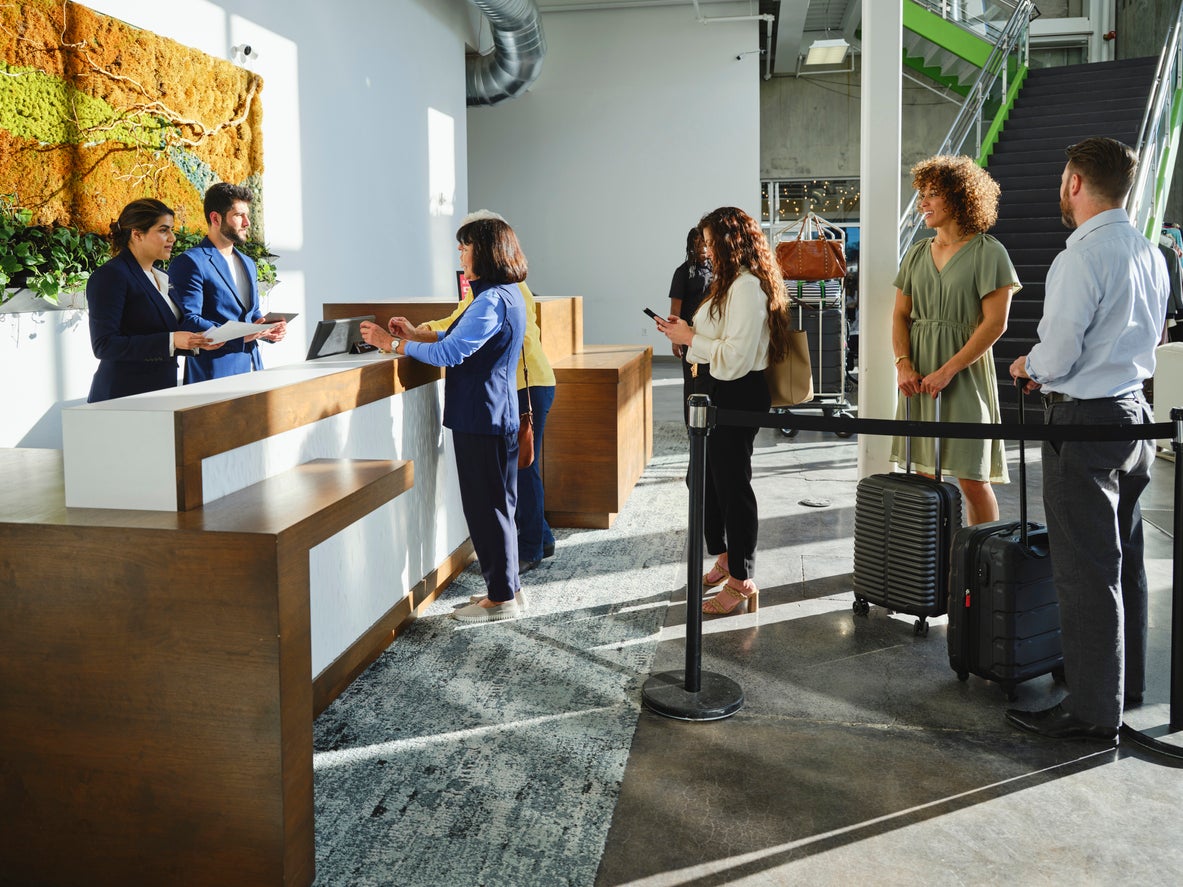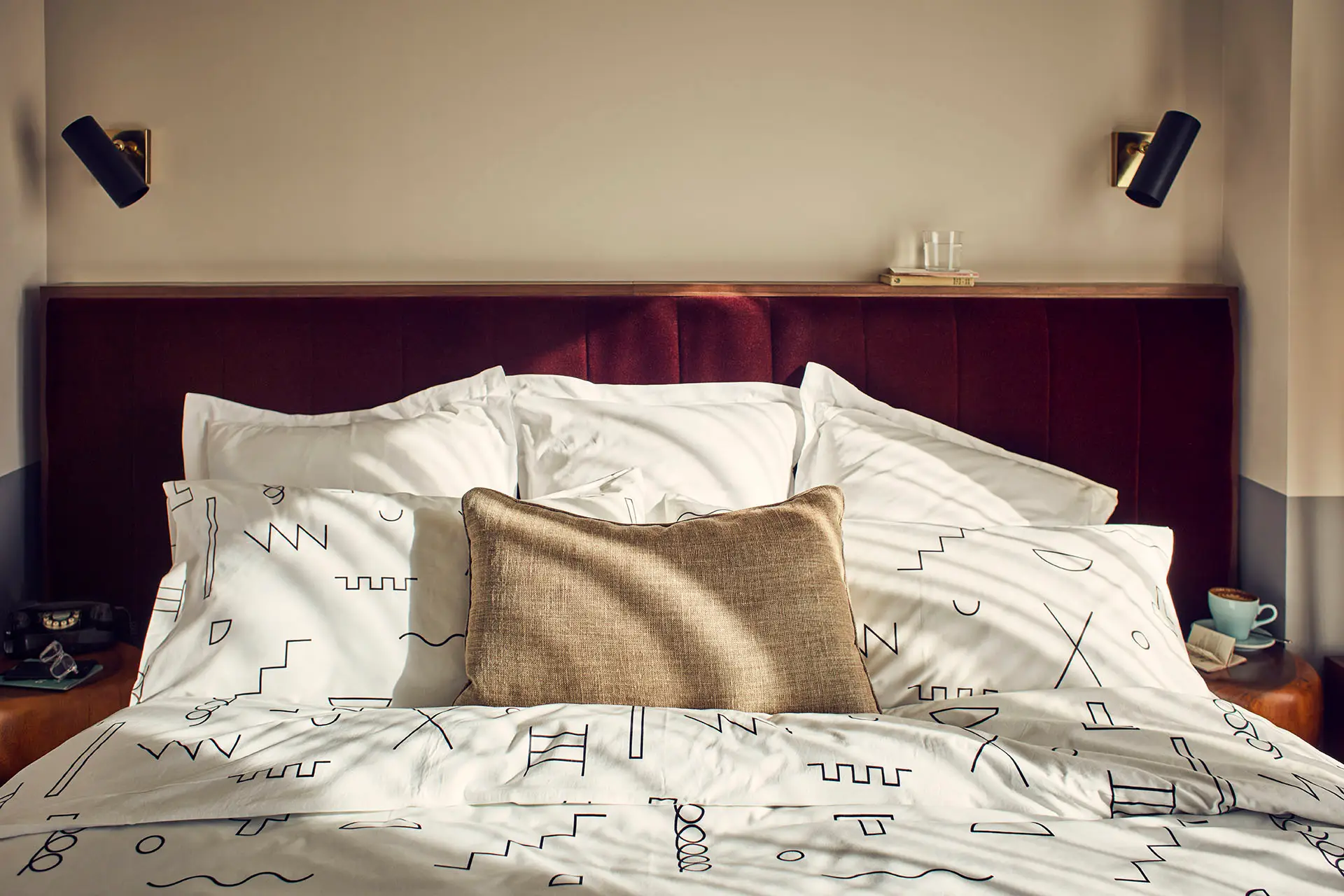Goodbye to the 11am kick-out? Why hotels are axing traditional check-in times
The check-in dance has stuck at the same hours for centuries


It’s pretty odd, when you think about it. You arrive in a city first thing, following a lengthy overnight flight and plenty of airport wrangling, hefty suitcase in tow. And yet you can’t flop down in a comfy space for another seven hours. Best case scenario your room might be ready an hour or two earlier than the practically iron-clad 3pm; worst case you’ll end up lugging it over cobblestones and up steps, trying to find a cafe to while away a few hours. Meanwhile, you’re haemorrhaging sightseeing time.
The trad 3pm check-in and 11am or 12pm check-out, rigidly imposed at 99.9 per cent of hotels, is still a regular travel frustration. Even though it’s much easier for guests and properties to discuss arrival and departure times, the dance remains the same: a trailing queue at reception desk at these “peak times”, with the 11am-3pm empty hours used for housekeeping staff to turn around each room for the next guest.
But over the years, momentum has quietly been building towards a better way. In summer 2016, Standard Hotels launched “Standard Time”, a paid extra that enables guests to check in and out whenever they want. “We can think of a bunch of reasons” why you’d want to do so, said the brand at the time, citing “You jet after sunset” and “The minibar’s not going to drink itself” as just two of them. It was only available to people booking directly through the brand’s website.
Then in late 2019, stylish boutique hotel group The Hoxton unveiled its “Flexy Time” initiative, also available as a perk only to direct-booking guests. These VIPs can check in at a time of their choosing, from midnight at the beginning of their arrival day, and out at a time of their choosing until midnight at the end of their departure day.
Peninsula Time is free, as long as you book directly with the brand - flexible time in exchange for loyalty seems to be the way forward
“Flexy Time looks to eliminate the irritations travellers are regularly faced with – from not being able to shower after a long-haul flight, to having to check out half asleep after a big night out – and gives guests more time to enjoy their stay, whatever their reason for travel,” said a statement from the brand at the time.
Still up and running, this perk doesn’t even necessarily cost the holidaymaker more. Researching my Hoxton hotel of choice, the Williamsburg outpost in Brooklyn, NY, I found a Cosy room for £235, room only, including Flexy Time – which would allow me to arrive from 00.01am on the first day and depart at 11.59pm on the second. On Booking.com, the same room was available for £225, with the stricter timings of a 2pm check-in and a 12pm check-out. Hotels.com listed the hotel for just £1 less at £234 a night for the same room, with the same rigid check-in structure. All in all I’d be paying £10 more for Flexy Time, but gaining up to 26 hours of access to a bed, shower, power points and quiet privacy.

In 2021, Peninsula Hotels followed with “Peninsula Time”, letting guests arrange to get into their room as early as 6am and leave it as late as 10pm on the day of departure. This, too, is free, as long as you book directly with the brand – flexible time in exchange for loyalty seems to be the way forward. The group even rejigged housekeeping staff’s shifts earlier and later to enable the more flexible hours. The month after launch, the brand’s group director told Afar that the group had seen a “marked increase in business from clients travelling on Qantas”, who’d arrive into LAX at 8am and opt to stay at the more flexible Peninsula Beverly Hills.
More recently, Portuguese group Octant Hotels is making a big drive for what they call “a new latitude of freedom” at its properties, which involves eradicating formal check in or out times, no closing time for swimming pools, and no deadline for getting down to the breakfast buffet. Heaven for those of us who detest a long list of intense house rules, right? However, it doesn’t yet advertise its flexible check-in on its hotel websites, meaning you have to be in the know to check ahead and adjust your stay timings.
And it’s not all about an extra hour in bed, a more leisurely breakfast or arriving tired first thing. The current system sees long queues trailing from reception at midday and mid-afternoon, as all guests rush to check out and check in at the earliest or latest possible time.
In response, start-ups promoting non-traditional hotel timings have also cropped up over the years – HotelFlex, one that aimed to “change the way hotels operate so guests can check in and check out at whatever times they want – and pay accordingly” came and went in 2017. In a similar vein, still-running Dayuse aims to maximise hotel potential by renting vacant rooms out to short-stay guests for a few hours between check-ins.
Octant Hotels’ approach is eradicating formal check in or out times, no closing time for swimming pools, and no deadline for getting to breakfast service
Meanwhile, Indian brand Brevistay recently reported it has grown by 186 per cent year on year with its “pay per hour” business model very similar to HotelFlex’s – enabling hotel users to book and pay for the exact hours they plan to be in and use a hotel room. Time flexibility is still very much on the modern hotel’s radar as a bargaining chip for loyalty and bookings.
The Hoxton COO Rob Andrews tells me that, across the brand’s locations in London, bookings by guests opting for Flexy Time average between 10-12 per day. “Having Flexy Time enables us to offer a truly personalised service to those guests who opt for it... it was an industry first when it launched, and is just one of the ways The Hoxton is innovating in the hospitality sector,” he adds.
Another factor in the drive toward flexibility is remote workers and “bleisure” travellers – if someone is working from a city abroad they need to get online, and quickly. Many are willing to pay a little extra for the privilege.
Booked a hotel which is nowhere near the flexible check-in revolution stage? As a tip from someone who checks in frequently, I’d say always try your luck, particularly with late check-outs. Phone reception first thing, politely ask whether it would be possible to check out an hour or two after the standard time, and you’ll have a good chance of getting a yes. Whether it’s in the name of an extra hour in bed or a shower before an afternoon flight, it’s always worth a shot.
Join our commenting forum
Join thought-provoking conversations, follow other Independent readers and see their replies
Comments
Bookmark popover
Removed from bookmarks